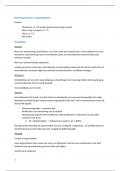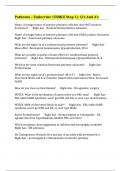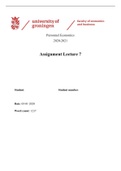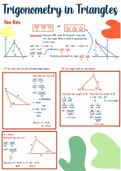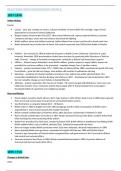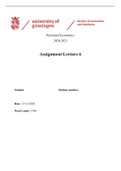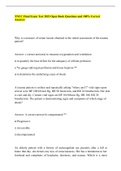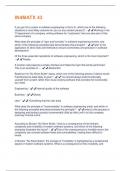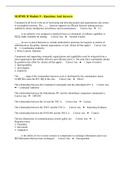Essay
DISINVESTMENTS AND SANCTIONS MATRIC ESSAY
- Course
- History
- Institution
- Hillcrest High School
I personally wrote these essays in my final NSC History exams and recieved an overall A aggregate. The have all been checked, edited, and perfected over the course of my matric year. This essay answers the question: “Disinvestment and sanctions were undoubtedly the most significant protests b...
[Show more]




